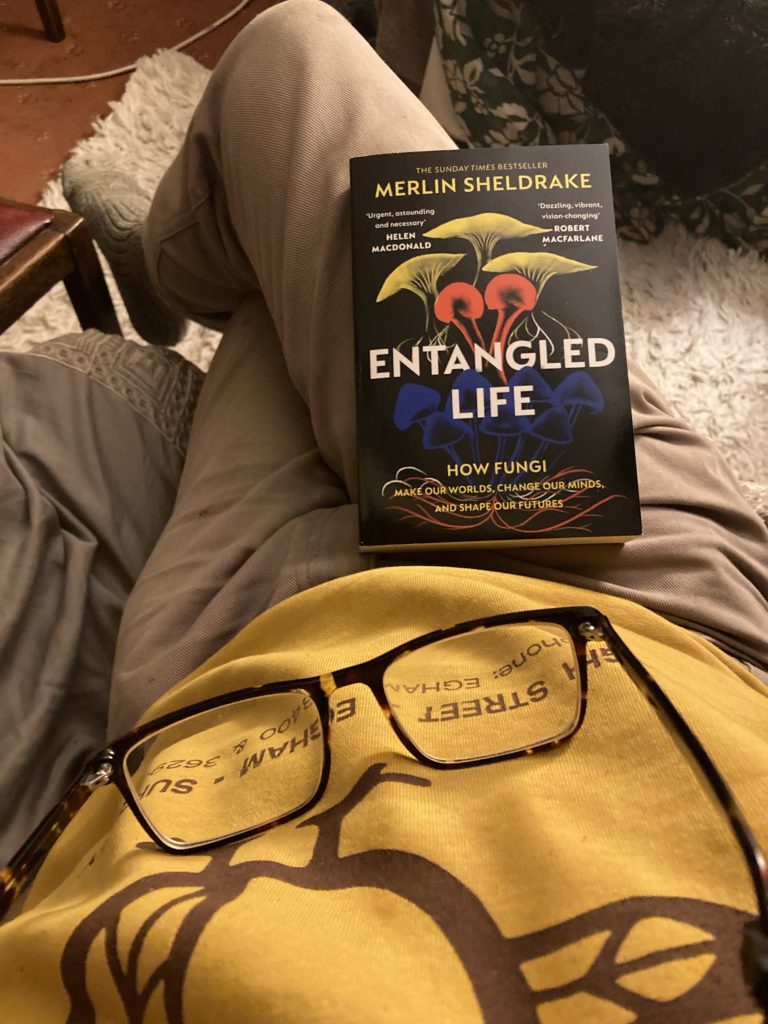

I’m giving this book my rare and coveted (ha! I wish!) six stars rating. For the exceptionally good. Am I being swept up and away in the euphoric hype around young Merlin and his über-trendy book? Will I regret my blissful embrace? We shall see, I guess. Anyhoo… my review:
I’m still reading this, at the time of starting this review. I’m probably about 80% through the main body of text (there are tons of notes!). And we – my wife and I, and some friends – are going to see the author give a talk about the book in Ely, next week (Nov, ‘23).
Knowing that Merlin is the son of the maverick and sometimes controversial Rupert Sheldrake (who has published a book with the provocative title The Science Delusion*), I was rather sceptical of this at first glance.
*Haven’t read it yet. But want to.
Also, as one can see by the plethora of breathlessly admiring quotes that adorn the various editions – and this is the authors’ first book! – Merlin appears to be the very dictionary definition of what it is to be lionised, or (even worse), fashionable.
Deploying little quotes that range from Prince to Tolkien and Tom Waits – all of whom I love, as it happens – this populist vibe, and his background, reared on the lap of such psychedelic psychonauts as Terence McKenna and Paul Stamets, might be cause for grave concern.
And he does have an occasionally rhapsodic side, that’s nearly as evangelistic as folk like McKenna. But all in all, the younger Sheldrake gives us a very balanced account, putting both the enthused visionary’s views, and those of the more sober sort over with nearly equal weight.
One thing I’ve come away with, amongst many, from reading this hugely interesting, highly readable, deeply informative, and altogether fascinating book, is a view Sheldrake shares; I forget who he quotes at the time (the book is strewn with quotations and citations), but someone describes mycology as a neglected ‘mega-science’, compared with our studies of plants and animals (or even inert matter, for that matter!).
And this brilliant book makes a very strong case for the need for more folk, both at grassroots and social/institutional levels, to remedy this oversight. The stories Sheldrake tells here – from his own rotten-wood fermentation bath, to stuff from deep history and/or a ‘fungal point of view’ – are both very beguilingly told, and full of inherent interest.
I’m one to bridle at hype, and both book and author seem to be ‘instant darlings’, making me deeply suspicious. But on reading the book, I’m entirely won over. Superb. Highly recommended.
